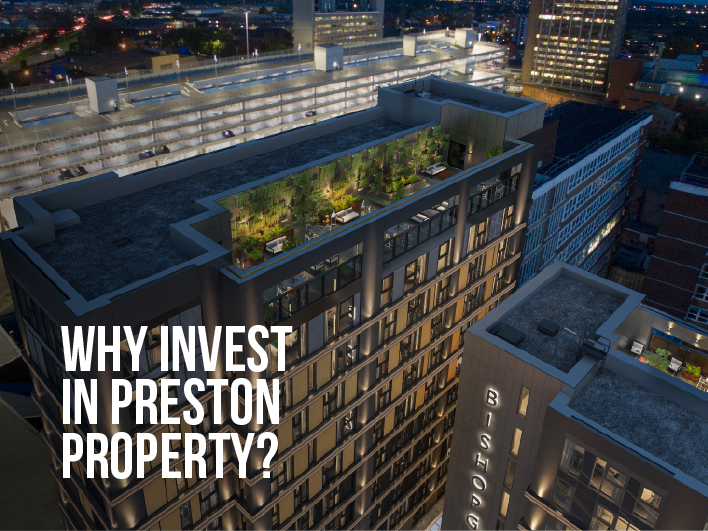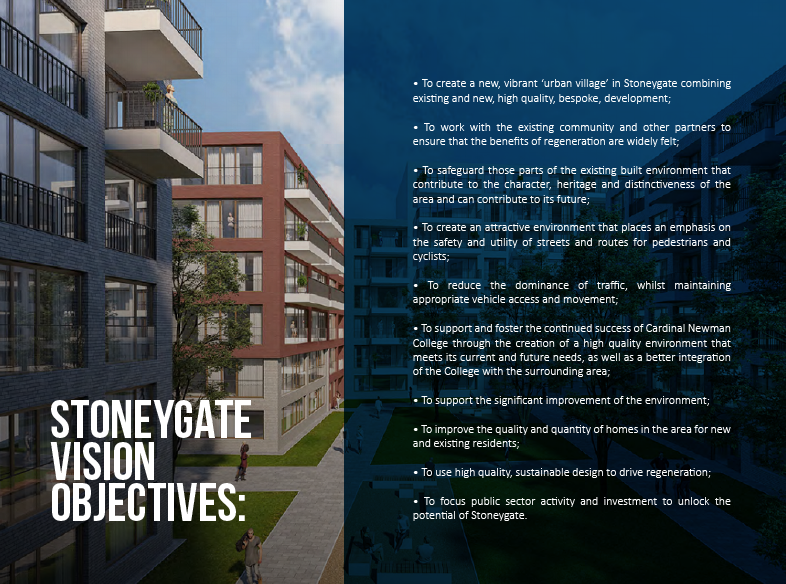Why invest in Preston Property?

Growth and Economy
Preston is a historic town located in the north western county of Lancashire, about 35 miles from both Liverpool and Manchester. Lancashire is one of the largest local economies in the North of England, currently generating over £23 billion in GVA per annum and supporting nearly 620,000 jobs.
In the 19th century Preston transformed from a small market town into an industrial centre for cotton milling, interestingly becoming the first town outside of London to be lit by gas.
Like many such ex-industrial northern towns, Preston has witnessed a resurgence over the last two decades and officially became a city in 2002. Nowadays the city continues to focus on manufacturing and engineering, being home to major technical manufacturers including BAE Systems. Perhaps not known to many people is that the Nuclear power industry is a major part of the local economy, with energy company EDF operating two nuclear power stations in the area while another private company, Westinghouse Springfield, manufactures the nuclear fuel for the plants.
As well as numerous other important manufacturers, Fox’s Biscuits and Warburton’s to name just two, there are also various public sector employers in the area including, NHS establishments, one major university (plus several other campuses) and the Lancashire Constabulary.
Preston was named as the UK’s most improved city in 2018 by thinktank Demos, which uses a range of measures to assess factors beyond mere economic output – including employment, workers’ pay, house prices, transport, the environment, work-life-balance and inequality. On an index of 42 UK cities, Preston was seen to have improved the most.
Unemployment decreased 3.1% in 2018 year compared with 6.5% in 2014, and improvements above the national average have been felt in health, transport, the work-life balance of its residents, and for the skills among both the youth and adult populations.
Following an economic model borrowed from the US rust-belt city of Cleveland, Preston has used a range of ‘ultra-localist’ policies to boost the economy, including encouraging local procurement by the city’s big players and the development of worker owned cooperatives, all believed to have factored in to the first place ranking.
Regeneration
Preston is part of a tremendous £435 million investment process to improve the city’s infrastructure development. The initiative, called the Preston, South Ribble and Lancashire City Deal, will allow Preston and Lancashire to take forward 4 new road schemes, enabling over 17,000 new homes to be built, freeing up land for new development, and creating more than 20,000 jobs. The plan is expected to add £1bn to the local economy in the next decade.
Another major regeneration initiative is the Stoneygate Framework, a masterplan to regenerate the 25 hectare Stoneygate area of the city centre into an ‘Urban Village’. The Masterplan for the Stoneygate area represents an ambitious programme which, if substantially implemented, will radically transform this part of Preston. The area has the potential to deliver 1600 new homes as well as commercial and other floorspace.
Property and Rental Growth
Preston is actually the third largest City in the North West and offers a number of options to suit all investors. For those interested in the BTL market, figures from Zoopla state that over the last 5 years prices have increased by a substantially healthy 13.14% over the last five years.
But what next? In their Residential Property Forecast, industry experts Savills predict the North West to be the number one highest growth region in the UK, rising by 24% over the next five years. With the aforementioned regeneration initiatives and the growing economies belonging to Manchester and Liverpool encapsulating other areas of the region, not to mention attracting commuters, Preston has the longevity and growth potential that UK property investors look for.
Of course, capital growth is only one side of the investor’s coin. Rental yields in the centre of Preston are well above the UK average, in excess of 7%.
Solid Student Population and University Employers
There are three Universities in and around Preston, including UCLan, Lancaster University and Edge Hill. UCLan is located in the centre of Preston, and employs 3,000 staff and is home to over 30,000 students. Graduate retention is a focus of northern cities as they fight to retain the talent that their local universities have nurtured. Figures from 2014/15 suggest that Preston’s graduate retention rate is 22%.
With nearby Liverpool and Manchester also highly popular amongst young people and retaining more and more of their university’s students, more demand is created amongst affordable commuter locations.
Summing Up – Why you should invest in Preston Property?
The North West is officially the top location for property capital growth forecasts over the next 5 years. Preston is certainly going to benefit from this enormous growth, thanks to huge regeneration and infrastructure projects. Now is the time to invest before prices shoot up.
Keep an eye out for our upcoming Preston development, offering luxury city centre apartments.



